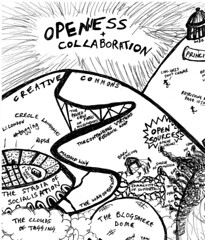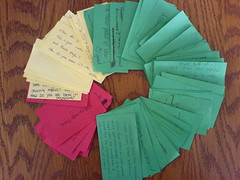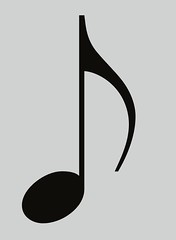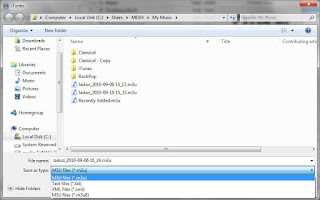With conventional music tagging there is lots of manual editing or semi-automatic tagging but
SongKong is a rules based tagger. The basic idea is that
rules define how you want your music collection
to be organized, then the rules can be applied to your
whole music
collection without any manual editing required giving a
totally
consistent music collection with the
minimum effort on your part. You can change the rules and then reapply to
the whole collection to maintain a consistent music collection.
There are three main aspects to incorporating rules based tagging, lets summarize the perfect system:
1. It would be possible to
correctly identify every file in your music
2. Once a song is identified the database it has been matched to would contain
every desired attribute of the song that you are interested.
3. It would be possible to
define rules to extract and apply the data in any way required.
And this is SongKongs implementation:
1. SongKong generates Acoustic fingerprints for each song and this can be looked up in the
Acoustid database to identify the song, working in a similar way to
Shazam. Acoustid currently contains fingerprints for 16 million songs allowing the majority of your songs to be identified, but Acoustid can only identify the song not necessarily the album. However by combining this with comparing existing meta-data in your songs we can match to the album as well in the
MusicBrainz database. MusicBrainz provides high quality detailed data onmore than 1 million albums.
You can influence the importance of metadata such as by specifying a preference of matching albums form certain countries of a preferred format such as CD or Vinyl.
So MusicBrainz/Acoustid provides good coverage for most music collections. But we also use the
Discogs database as an alternative source.
Even so, we cannot guarantee 100% matching, but testing shows that in the majority of cases approximately 90% of a collection can be matched to MusicBrainz or Discogs.
It has to be said both of these databases do have better coverage for Pop/Rock/Electronic western music than Classical and World Music. But there are many projects ongoing to fill these gaps, for example the
Music Technology Group at the Universistat Pompea Fabra is working with MusicBrainz to add Indian Raag Music.
The good news is that MusicBrainz open approach is fast becoming the de-facto standard database of music information.
2. Some Music databases contain only the most basic information such as artist, album, title and year of release. But the MusicBrainz database consists of an incredibly rich semantic model, and allows new relationships to be defined between entities.
When SongKong matches to a song in MusicBrainz it is
guaranteed to find at least 19 fields (such as artist, album ecetera) and often an additional 35 fields. This includes high quality artwork, usually at a resolution of at least 600 x 600 pixels.
These fields also includes some MusicBrainz Ids, this means that your songs are compatible with other MusicBrainz enabled applications. It also means you can always look up the original source of the data at any time in the future.
3. SongKong is intended to be easy to use, but there is no one right way to organize your data. Everybody has different requirements based on their personal preferences and how and where they are going to play their music.
Here are a few scenarios handled by SongKong:
You are a DJ only interested in individual songs and has no interest in the album information. SongKong lets you specify exactly how files are named and stored, you can use any piece of metadata for deriving your filename ,and can use powerful Javascript expressions to manipulate the names.
Your music is already stored in iTunes. SongKong can work with iTunes automatically, updating the information in iTunes for songs that are already under iTunes control and adding songs that are not iTunes control to iTunes.
You like to process songs in a pipeline moving them from unmatched to matched location. SongKong allows you to move files as they are matched to a new location, it also allows files that it failed to match to moved as well.
I hope this post helps you understand the basics of rule based tagging. Jaikoz also incorporates rule based tagging , but also provides manual editing and semi-automated tagging.



















